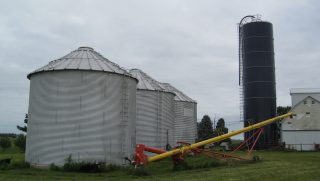Education and skills gaps have long been a challenge for the agriculture industry, as the demand for qualified candidates in agricultural science careers has significantly outpaced the pool of applicants with adequate training and education. Bayer, in collaboration with National 4-H Council, has released the results of the second annual Science Matters survey, which explores the opinions of parents, teachers and — new this year — students on the importance of agri-science in high school curriculum.
The 2019 survey confirmed that low awareness of career options in agriculture is a primary factor leading to the limited pool of skilled applicants. In fact, the data showed that although nearly 80 percent of surveyed high school students believe that agricultural science education is important to future success, only 19 percent reported that they are likely to consider a career in agriculture.
One explanation for this disconnect could be a lack of awareness of the diverse opportunities available within the agriculture industry. Only 36 percent of surveyed students reported being familiar with agriculture career choices beyond working on a farm, despite alternative and thriving occupations such as veterinary science, biotechnology, raising and training animals, and forestry.
“The 2019 Science Matters study shows a disconnect between students’ perceived value of agricultural science and their awareness of tangible, fulfilling, and diverse career opportunities, which presents an enormous opportunity for the agricultural community,” said Lisa Safarian, President, North America Commercial, at the Crop Science Division of Bayer. “These survey results are a call to action for the industry to come together and invest in our youth, educating them and developing their skills in areas where it has been traditionally challenging to identify and recruit a qualified workforce, and highlight the success and impact they can have in a multitude of diverse careers.”
The agriculture industry isn’t alone in recognizing the value in driving awareness and enthusiasm in agricultural careers among students. In fact, the survey found that 92 percent of teachers feel it is important to expose students to agri-science education, up 14 percent from 2018, and teachers feel more prepared than ever to play a role in educating students. More than three-in-five high school science teachers say that they feel qualified to teach agri-science content, a 35 percent increase over 2018 when fewer than half of teachers reported feeling qualified.
Although, like students, parents (90 percent) agree agricultural science education is important, both groups are less likely to believe more of an emphasis should be placed on STEM education in the classroom. While 55 percent of teachers would like to focus more on STEM subjects, only 43 percent of parents and 30 percent of students agree.
It is with this enormous opportunity in mind that Bayer and National 4-H Council created Science Matters, an educational outreach program that leverages a variety of strategic and creative programming to pique students’ curiosity about agri-science and STEM education. Fortunately, more than half (52 percent) believe that agri-science is an exciting, creative, and interesting subject according to the study, but there is still more to be done to translate this interest into action.
By launching Science Matters in August 2017, Bayer and National 4-H Council have committed to equip at least 25,000 students from rural, urban and suburban communities with the tools and support they need to deepen their understanding of science.


